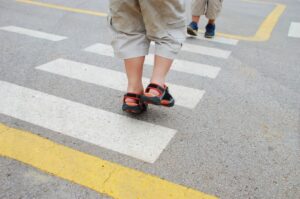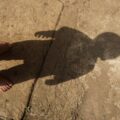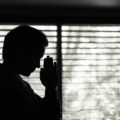Inquiries into past abuses in the Catholic Church
Inquiries into past abuses in the Catholic Church
The publication of an inquiry into abuses in the French Catholic Church has reignited pressure for similar action across Europe.
On 5 October 2021, an inquiry into cases of abuse by clergy in the French Catholic Church was published. The report, which found 216,000 cases of paedophilia since 1950, has made international headlines.[1] For the Church, these headlines illustrate the double-edged sword of such inquiries.
On the one hand, the fact that such inquiries are being conducted and abuses are finally being discussed more openly is a positive sign of a Church that is willing to criticise itself and its clergy. On the other, the revelation of such widespread abuse furthers doubts about the actions of the Catholic Church in the past.
However, this is not only a question of historical cases, but also about the current position of the Church. In different European countries, the questions of inquiries and investigations about past abuse have been dealt with differently. The differences in this process are revealing. Therefore, in this two-part article, we will aim to review the development of the issue in different Western European countries.
The role of the Vatican
During the 1970s and 1980s, cases of paedophilia in the Catholic Church made occasional headlines. However, it was not until the 1990s that the first widespread investigation into the problem took place in Ireland. This was followed by a major investigation into the American clergy by the Boston Globe newspaper in 2002, which led to more accusations of abuses in churches across the world, particularly in Europe.[2]
Many people, both believers and non-believers, have looked to the Vatican for direction in how to approach the allegations of cover-ups of abuses. According to a 2016 article in The New Yorker, under the leadership of John Paul II, the issue was intentionally played down. This attitude began to change under Benedict XVI, and Pope Francis has continued a process of recognition of the need to investigate the problem.[3]
Since becoming pope in 2013, Francis has made a series of decisions that have been intended to demonstrate his willingness to face up to allegations of abuse. These include the creation of a Vatican committee focused on the question of sexual abuse in the Church, and a public apology for the Vatican’s past role in failing to take action against abusers. However, the pontiff has also received criticism from some bishops that progress had been too slow. These criticisms contributed to a 2019 decision to make it mandatory for Roman Catholic clergy to report cases of clerical sexual abuse and cover-ups to the Church. According to the BBC, this clarification “was seen as a message to the Church hierarchy that no-one will be exempt from scrutiny.”[4]
Whilst this leadership from the Vatican is important, it is clear that the changes are more focused upon what can be done in the future, rather than exploring the past. This is partly due to the fact that the investigation of past wrongs has fallen to the leading clergy in each nation, rather than the Holy See. As a result, there is significant variety between different European nations on how they have tackled the problem.
Accepting the need for investigation – the Sauvé report in France
The question of investigations into abuses in the Catholic Church has hit the headlines across Europe in recent weeks as a result of the publication of the Sauvé report in France. The Sauvé report was a result of the work of an independent commission that was set up by Catholic bishops in France at the end of 2018 to investigate sexual abuses by priests and other clerics within the institution.[5]
The report, which was published on 5 October 2021, discovered that 216,000 people had been victims of sexual abuse by members of the clergy whilst under the age of 18, dating back to 1950. More widely, the number increased to 330,000 when taking into account those who were associated with the Church but not priests themselves.[6]
Yet, as an article in Politico stated, although the extent of abuse was indeed shocking, the fact that the report had identified so many cases was, sadly, not a surprise. Over the last 20 years, the “steady drumbeat of cases” made it clear that the Church had a serious long-term systemic challenge on its hands. As the article described, what was more surprising was that the extent of the problem was, for the first time, being said out loud, with bishops in attendance at the event held to discuss its findings.[7]
For a Catholic Church that for many years sought to cover up the existence of the problem, the greater degree of honesty and openness that the Sauvé report has brought is an important and difficult step towards progress.
An example to follow?
There is no doubt that the publication of the report represents a moment of great shame for the French Catholic Church. However, the fact that this type of report has been conducted and discussed openly is evidence that the leadership of the French clergy has accepted the need for independent investigation into past abuses.
The second part of this article will look at how the progress of other countries in Europe contrasts with the investigation in France. As Jean-Marc Sauvé, the former judge who led the investigation, said himself, France has comparatively fewer abusers compared to other major Catholic countries. Therefore, it is actually, in his words, “at the lower end of this scale.”[8] It will be important to contrast the investigation in France with the progress of such investigations in Germany, Italy, and Spain and to look at how the publication of the French report has led to similar demands elsewhere in Europe.
Interested in similar topics? Go to our Dashboard and get free updates.
Sources
[1] Sexual Violence in the Catholic Church France 1950 – 2020 Summary of the Final Report Independent Commission on Sexual Abuse
[2] The decades-long Catholic priest child sex abuse crisis, explained
[3] What Pope Benedict Knew About Abuse in the Catholic Church
[4] Pope Francis makes it mandatory for clergy to report sex abuse
[5] French Catholic clergy sexually abused 216,000 children, report finds
[6] Abuse report on the Catholic Church in France — a shock, but not a surprise
[7] Abuse report on the Catholic Church in France — a shock, but not a surprise
[8] Abuse report on the Catholic Church in France — a shock, but not a surprise






